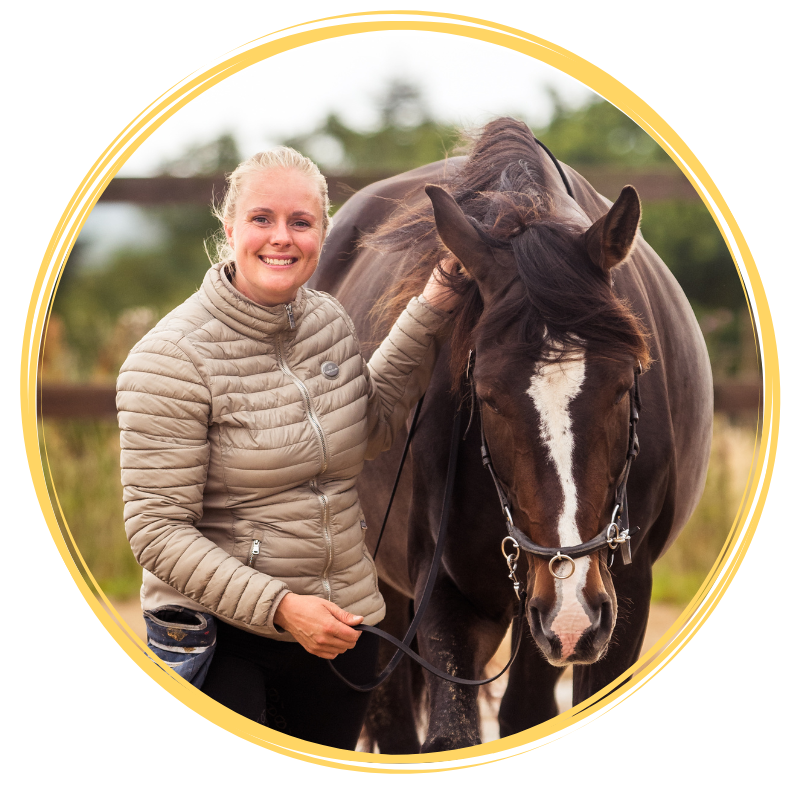få 6 nemme opvarmningsøvelser, der giver dig en bedre ridetur fra start til slut
I løbet af 3 dage får du 6 hurtige og effektive øvelser til at gøre din krop klar til at hoppe i sadlen og ride det bedste den kan.
– øvelserne har en god effekt på din opstilling, din evne til at følge hestens bevægelser og så vil din ridning blive mere harmonisk!
Alt du skal gøre for at modtage de 6 øvelser er at tilmelde dig Glade Ekvipagers nyhedsbrev, krydse af at jeg må sende dig mails og så huske at tjekke din mailboks 👌
 Jeg hjælper dig, rytteren der er klar til udvikling, med at skabe et harmonisk partnerskab med din hest så du kan få mere glæde og kvalitet ud af din hestetid - uden at have en knude i maven over dine træningsmetoder.
Jeg hjælper dig, rytteren der er klar til udvikling, med at skabe et harmonisk partnerskab med din hest så du kan få mere glæde og kvalitet ud af din hestetid - uden at have en knude i maven over dine træningsmetoder.
Jeg hedder Julie Herold, er fysioterapeut for mennesker og heste og en stor hestenørd.
Min store passion er at optimere hestens og rytterens præstation igennem evidensbaseret vidensformidling, rideundervisning, træning og fysioterapi til hest og rytter.
Modtag mine 6 yndlingsøvelser til inden du hopper på hesten og start din rejse mod at blive en mere bevidst rytter.

